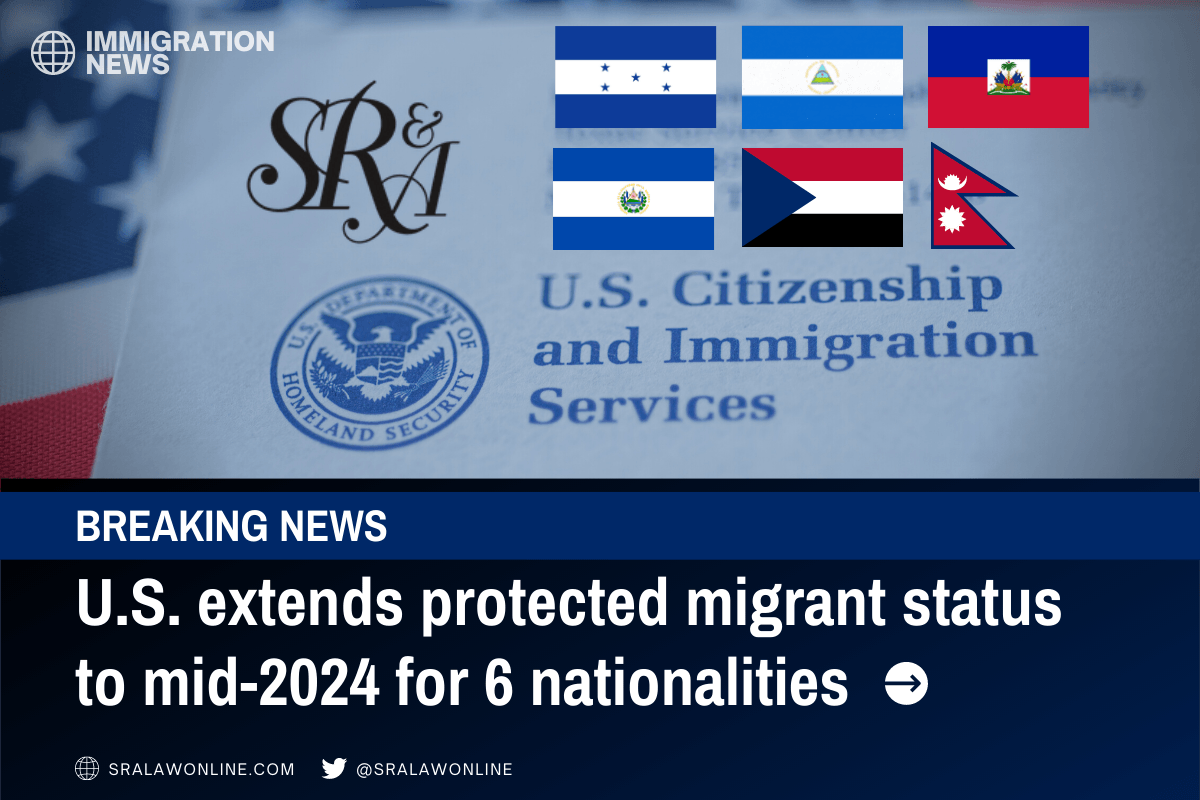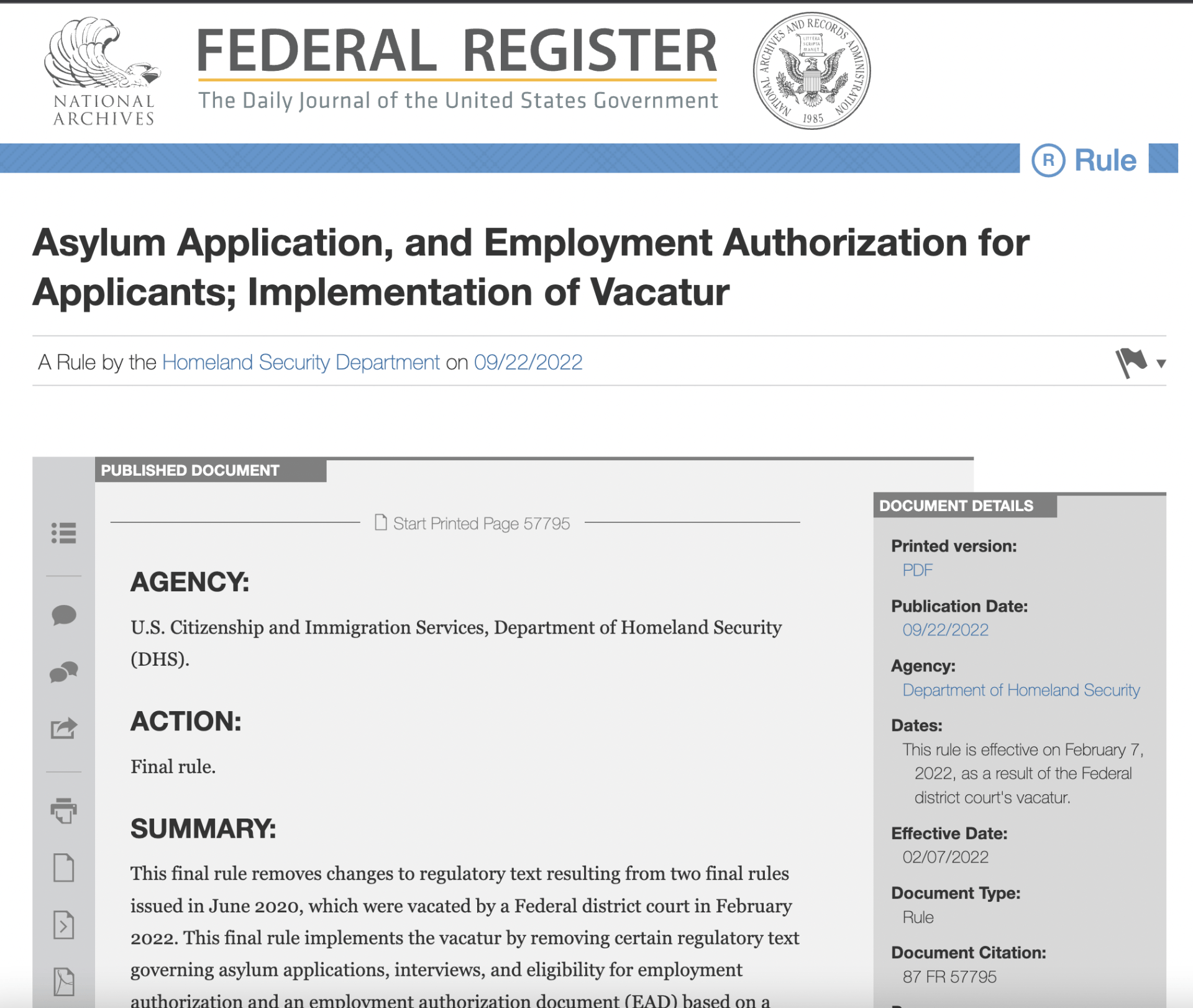Is it Possible to Adjust Status Based on TPS?

Depending on the jurisdiction where you practice the answer can vary.
TPS is provided in limited circumstances to countries designated by the Secretary of the Department of Homeland Security. Important to note, it is a humanitarian immigration policy for foreign nationals in the United States who cannot return to their home countries because of armed conflict, natural disaster, pandemic, or similar extraordinary conditions. This is important because if they are not able to adjust status, then the alternative would be departing the United States and processing an immigrant visa abroad. Based on the interpretation of the law by some courts of appeal, a TPS holder could trigger penalties that can create a serious impediment to gaining legal permanent residence in the United States. A common scenario is a married TPS couple who have an adult US-born son/daughter and no qualifying relative to waive unlawful presence if they have to undergo consular processing.
Depending on your jurisdiction the ability for a TPS recipient to adjust status may have fluctuated between an affirmative answer and a denial over the past 4 years. This is an attempt to provide an update on what is currently taking place with TPS holders through case law and through USCIS policy. We will also address how traveling on an advance parole may or may not help a TPS holder’s attempt to adjust status.
The issues presented here are:
- Does the grant of TPS allow for adjustment of status to someone who first entered the United States without inspection?
- 2. Does travel on advance parole by a TPS holder who originally entered the United States without inspection allow them to adjust status?
- Does travel on advance parole by a TPS holder who originally entered the United States without inspection allow them to adjust status in removal proceedings?
First we have to look at what is required by statute in order to adjust status. The status of an alien who was inspected and admitted or paroled into the United States or the status of any other alien having an approved petition for classification as a VAWA self-petitioner may be adjusted by the Attorney General, in his discretion and under such regulations as he may prescribe, to that of an alien lawfully admitted for permanent residence if (1) the alien makes an application for such adjustment, (2) the alien is eligible to receive an immigrant visa and is admissible to the United States for permanent residence, and (3) an immigrant visa is immediately available to him at the time his application is filed.
Second, we have to look at what the Temporary Protected Status statute has to say about adjustment of status. It would appear from a plain reading of the statutes that a TPS holder would be eligible for “adjustment of status” as being considered “being in, and maintaining, lawful status as a nonimmigrant”.
Does the grant of TPS allow for adjustment of status to someone who first entered the United States without inspection?
The Circuit courts are split on this view and on January 8, 2021 the Supreme Court granted certiorari to
Sanchez v. Wolf.
The issue before the Court is whether the grant of TPS authorizes, otherwise eligible applicants, the ability to obtain legal permanent residence even if they had originally entered the United States without inspection. In
Sanchez, the Petitioners are husband and wife. Mr. Sanchez has an approved employment based petition and an immigrant visa is currently available. His wife, Sonia Gonzalez, is a derivative beneficiary of his application. Mr. Sanchez applied for adjustment of status at the USCIS office in New Jersey as an applicant “present in the United States pursuant to a lawful admission,” “on the date of filing an application for adjustment of status,” and “subsequent to such lawful admission has not, for an aggregate period exceeding 180 days,” “failed to maintain, continuously, a lawful status.” USCIS denied the application for adjustment of status based on agency guidance that states that non-citizens who enter the U.S. without inspection and are later granted TPS do not meet the “inspected and admitted or paroled requirements”.
There are currently several split Circuits who have taken up this issue. The Sixth, the Eighth and the Ninth Circuit have found that TPS beneficiaries have met the requirements of 8 USC §1255(a) and allow for TPS recipients to adjust status as having been “admitted and inspected”.
In
Flores v. USCIS,
a Honduran national entered the United States without being admitted and inspected. He was later able to obtain Temporary Protected Status. After meeting a US citizen woman they started a relationship and got married. The court noted that the text of 8 USC §1254(a) provides the same treatment for TPS holders as any other person with “lawful status as a nonimmigrant for purposes of adjustment of status under §1255”. The court reasoned that if other nonimmigrants are considered “admitted” then the same must be true for TPS holders. The court also took into consideration the purpose of TPS and how otherwise, a recipient of TPS would have to leave the United States and start all over again to regain admission. The court was conscious of the difficulties and impediments faced by those who have to apply for an immigrant visa versus those who qualify for adjustment of status.
In
Ramirez v Brown, the court was presented with similar facts as the 6th Circuit. Ramirez is a Salvadoran immigrant who entered the United States without being admitted and inspected. He also obtained TPS and subsequently married a US citizen who filed for his immigrant status. The court looked at the language of the TPS statute and determined that it “explicitly refers to the adjustment statute”. It concluded that it “confers the status of lawful nonimmigrant on TPS recipients.” An individual with TPS has been admitted and inspected as required by 8 USC §1255(a) just as any other individual who “has obtained lawful status as a nonimmigrant” and therefore he “has…been ‘admitted.’” The court noted the “rigorous process” of obtaining TPS and its similarities to obtaining nonimmigrant status.
In
Velasquez v. Barr, the court consolidated cases which posed the question of whether someone who entered without being admitted and inspected could adjust status after obtaining TPS. The court concluded that a TPS recipient is deemed “inspected and admitted” and therefore, may adjust status in the United States. Velasquez involves several Central American women who first entered the US without inspection. They all obtained TPS based on their respective country’s designation. They all applied for adjustment of status as immediate relatives in their respective cases. The court took into account the other Circuit court holdings including
Sanchez v. Wolf. The court concluded that “a nonimmigrant is by definition ‘admitted’ to the United States.” The court then concluded that an “’admission’ of a nonimmigrant necessarily means that they were ‘inspected.’” The court turned to the definition of admitted in 8 USC §1101(a)(13)(A) to conclude that TPS recipients have been granted “lawful entry…into the United States after inspection and authorization by an immigration officer.” The court noted the Eleventh Circuit’s failure to address the meaning of nonimmigrant in 8 USC §1184 “or discuss the implication of obtaining lawful status as a nonimmigrant” in distinguishing their analysis.
The Third, the Fifth and Eleventh Circuits have rejected the finding that TPS confers a status like a nonimmigrant who has been admitted and inspected.
In
Serrano v. United States Attorney General, the court reached a different conclusion than the Circuits cited above. Serrano is a Salvadoran who entered the United States without being admitted and inspected. He obtained TPS and later married a US citizen. The court determined that a TPS holder’s “’lawful status as a nonimmigrant’ for purposes of adjusting his status does not change §1255(a)’s threshold requirement that he is eligible for adjustment of status only if he was initially inspected and admitted or paroled.” The court interpreted Serrano’s argument as stating that TPS alters the inspection and admission requirement of §1255(a) as if the nonimmigrant status of §1254(a)(f)(4) is different.
The Sanchez v. Wolf case differs because the facts are not the typical family-based adjustment application. This case involves the question of whether a TPS recipient who has maintained their TPS status can adjust status relying on the statute. The District court found that §1254a(f)(4) satisfied the requirements of §1255 in regards to being inspected and admitted. The government argued that once an individual enters without inspection, she can never satisfy the threshold requirement of being admitted. The Third Circuit agreed with the government’s argument.
The Fifth Circuit had two back to back decisions regarding TPS recipients and their ability to adjust status. First, in
Melendez v McAleenan the applicant was a B-2 overstay who applied to adjust status as under the 4th preference category while maintaining TPS. The court determined that there is no “fictional new entry” created by the grant of TPS and therefore, Melendez cannot adjust status. A TPS applicant for adjustment of status would have to be inspected and admitted, maintain status, and while in status be granted TPS in order to adjust status.
Second, and more recently, Nolasco is a Salvadoran who entered the US without inspection. He made a similar argument that his TPS meant he was inspected and admitted or paroled into the United States. USCIS denied his adjustment of status. The court referred to
Melendez’s no new entry and found that “Those with TPS who first entered the United States unlawfully are foreclosed from applying for adjustment of status as a matter of law.”
Does travel on advance parole
by a TPS holder who originally entered the United States without inspection allow them to adjust status?
For decades TPS recipients who traveled on an advance parole were able to adjust status in the United States. INS clarified the issue in a 1991 General Counsel Opinion by stating that a TPS recipient who had initially entered the United States, without being inspected and admitted, could satisfy the threshold requirement by departing the United States and returning with an Advance Parole Travel Document issued pursuant to INA §244(f)(3). The memo specifically indicated that immediate relatives and special immigrants would be considered as having been inspected and admitted for adjustment of status purposes. However, employment-based cases would not be able to use the advance parole to meet the requirements of 245(k) because TPS holders will have some period of unlawful presence between their unlawful entry and the grant of TPS.
However, starting sometime around 2019 some USCIS field offices began to deny adjustment of status applications for TPS holders who had traveled and returned on an advance parole. In some instances, Legal Permanent Residents who had TPS and adjusted status based on travel on an advance parole were being issued denials of naturalization. The naturalization denials were being issued with Notices to Appear based on findings that LPR status was procured unlawfully!
It is important to note that
Matter of Arrabally and Yerrabelly, 25 I&N Dec. 771 (BIA 2012) stands for the point that TPS holders who travel with an advance parole are “paroled” into the United States. Meaning that once they return they satisfy the threshold requirement of being “inspected and admitted or paroled” under 245(a) and they do not trigger the unlawful presence grounds of inadmissibility.
Arrabally and Yerrabelly seemed to uphold what had been the policy and practice of USCIS until 2019.
Instead, USCIS began to cite MTINA §304(c) as the basis for their denial. The interpretation offered by USCIS in issuing the Denials and Notices of Intent to Deny is that when a TPS holder departs the US with a § 244(f)(3) advance parole they return to the US in the same status they had prior to departure – but, meaning that they revert to the status they had when they first entered the United States. The USCIS Policy Manual, vol. 7, pt. B, ch. 2, § A.5 states:
“Since the purpose of Section 304(c) of the Miscellaneous and Technical Immigration and Nationality Amendments Act of 1991 (MTINA) is to return the TPS beneficiary to the “same immigration status the alien had at the time of departure,” this provision of MTINA “cannot be interpreted to put TPS recipients in a better position than they had been upon their physical departure from the United States[.] The TPS beneficiary’s travel and return “does not alter their immigration status for purposes of adjustment of status[.]””
https://www.uscis.gov/policy-manual/volume-7-part-b-chapter-2#footnotelink-74
It continues to state that a § 244(f)(3) advance parole is a matter of an administrative convenience – a form of maintaining a record of arrival:
“When DHS provides prior consent to a TPS beneficiary for his or her travel abroad, it documents that consent by providing an advance parole document (Form I-512) to the alien, as required by regulation. DHS issues an advance parole document for this purpose solely as a matter of administrative convenience. TPS travel authorization is unique and affords the TPS beneficiary only what is provided for under MTINA by restoring the alien to “the same immigration status the alien had at the time of departure.” The travel authorization for the TPS beneficiary allows the alien “to return to the United States in a procedurally regular fashion after foreign travel[.]” However, “[a] status quo ante return cannot create a condition needed to establish eligibility for a benefit for which the alien” would not have been eligible at the time of departure. TPS beneficiaries who depart and return to the United States with the prior consent of DHS pursuant to INA 244(f)(3) are neither admitted nor paroled upon return, but simply resume the same immigration status they had before departing. “The same immigration status” encompasses not only that status of an alien who may be present without inspection and admission or inspection and parole, but all other legal incidents of status, such as an alien’s status in deportation, exclusion, or removal proceedings.”
https://www.uscis.gov/policy-manual/volume-7-part-b-chapter-2#footnotelink-74
On August 20, 2020 USCIS issued a Policy Memorandum addressing the issue of TPS holders who depart on an advance parole and apply for adjustment of status. In the PM, USCIS adopts the AAO decision which continues to interpret MTINA § 304(c) as TPS holders being present in the US without inspection and admission or parole. Furthermore, upon return on advance parole they revert to the status they had when they departed – present without inspection, admission or parole. However, the Z-R-Z-C- Memo ends by stating that it is prospective in its application and allows for the adjustment of status of TPS holders who traveled on advance parole prior to the date of the issuance of the PM on August 20, 2020:
“Recognizing TPS recipients’ reasonable reliance on USCIS’s past practice and treatment of temporary travel abroad, USCIS will limit the application of
Matter of Z-R-Z-C-
to minimize adverse impacts to this group.
Matter of Z-R-Z-C-
does not impact TPS recipients who adjusted status to lawful permanent residence under the past practice and/or prior guidance. Such aliens, when applying for naturalization, will not be subject to section 318 of the Act for not having been lawfully admitted as a permanent resident.
In addition,
Matter of Z-R-Z-C-’s holding that a return to the United States pursuant to TPS travel authorization does not satisfy section 245(a) of the Act will only apply prospectively to TPS recipients who departed and returned to the United States pursuant to section 244(f)(3) of the Act after the date of this Adopted Decision.”
Does travel on advance parole by a TPS holder who originally entered the United States without inspection allow them to adjust status in removal proceedings?
In the removal context the BIA has addressed this issue regarding the removability of a TPS holder via
Matter of Padilla Rodriguez. The Immigration Judge below determined that Mr. Padilla was not subject to removal based on INA §212(a)(6)(A)(i) (present without admission or parole). Relying on
Matter of Sosa Ventura, the Board determined that a TPS recipient is “‘protected from execution of a removal order during the time [his or] her TPS’ is valid but remains removable if determined to be inadmissible under section § 212(a)(6)(A)(i) of the Act.” The BIA also referenced
Nolasco in stating that “TPS does not create a ‘fictional legal entry’” and concluding that “respondent’s time in TPS does not change his manner of entry or his status…”
The Immigration Courts will continue to follow the Circuit Courts ruling in their jurisdictions in matters involving TPS holders who have not departed on an advance parole. However, the Immigration Courts should continue to allow for the adjustment of status of those who have been paroled pursuant to the
Matter of Arrabally and Yerrabelly. The question becomes, if the court views the respondent as having been paroled what jurisdiction does the court have to adjudicate an adjustment? If the respondent was paroled, then they are an arriving alien and the court would not have jurisdiction over the adjustment. 8 C.F.R. § 1245.2(a)(1) Does that mean the case would have to be terminated and filed with USCIS?








